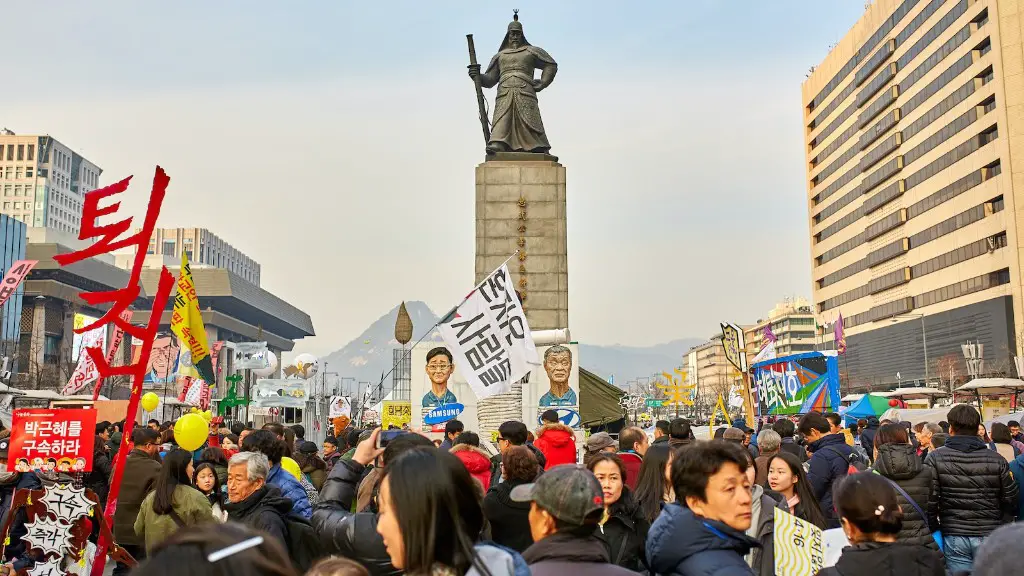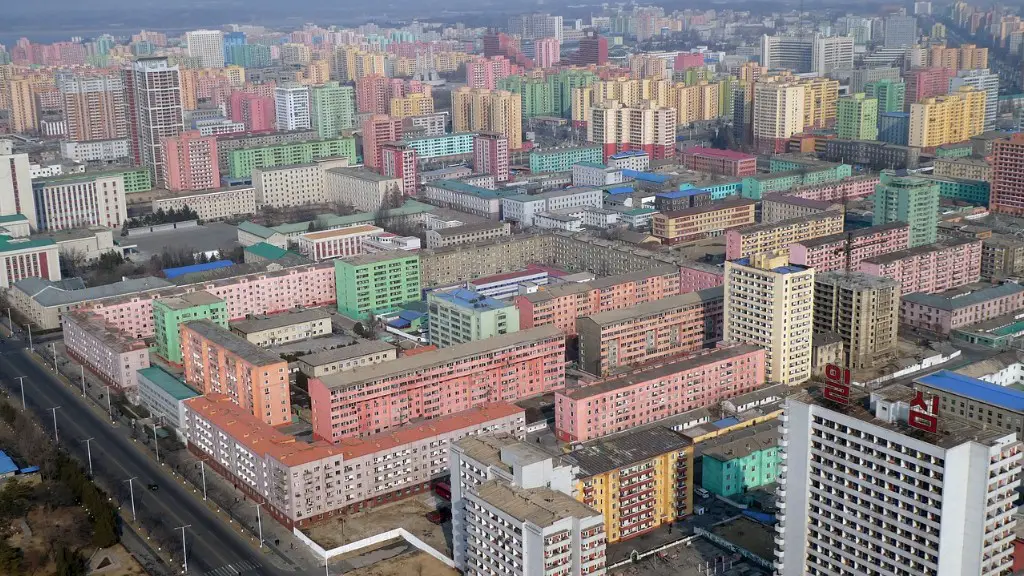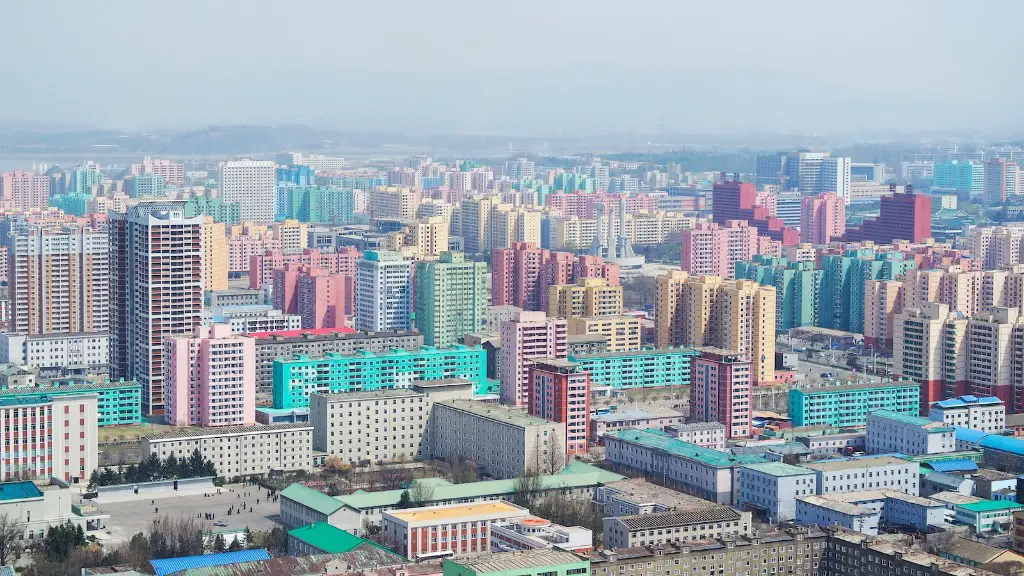Introduction
North Korea is a hermit kingdom, a place where facts are carefully managed and its citizens are subject to one of the world’s strictest regimes. Though it has become a source of global media fascination, there is a pressing question that has remained largely unanswered: Does North Korea have a cure for cancer?
At present, there is no clear-cut answer to this question. Despite the claims of North Korea’s reclusive leader Kim Jong-un, much remains unknown about the extent of cancer treatment and research in the country.
Cancer Rates in North Korea
The incidence of cancer remains high in North Korea, especially in comparison to other countries. Estimates based on limited data and population studies conducted by the World Health Organization (WHO) point to a higher incidence of cancer in North Korea than in the United States and the UK. In particular, lung cancer is the most common type of cancer in North Korea, followed by stomach and colorectal cancers, which are also on the rise.
Compounded by the country’s dire economic circumstances and lack of advanced medical technology, the mortality rate of cancer-related deaths in North Korea is significantly higher than other countries. Where the mortality rate for lung cancer is 23.1 out of 100,000 in the US, in North Korea it is estimated to be 84 out of 100,000.
Cancer Treatment in North Korea
North Korea is reported to have rudimentary healthcare infrastructure, and has limited access to life-saving medical treatment. Reports from inside the country point to the lack of availability and affordability of cancer treatments, including chemotherapy and radiotherapy, within the country.
In addition, few trained specialists are available to treat cancer. Doctors working in North Korea’s public health care system are reported to receive a basic salary of $10-20 per month, not enough to sustain a family. Further compounding the issue, reports suggest that the population as a whole is also at risk due to the lack of preventative measures, such as vaccinations and health screenings.
However, despite the lack of access to basic treatment, North Korea’s healthcare system has made progress in recent years. The introduction of telemedicine, the use of remote technology to provide medical advice and treatment, has the potential to bridge the gap between North Korean doctors and foreign specialists and provide a lifeline for North Koreans suffering from cancer.
North Korea’s Claims
Despite the lack of evidence, North Korea has made several claims of medical advancement over the years. In 2013, North Korea announced the presence of an anticancer drug developed with its own technology, and in 2017 announced that it had developed an “inexpensive cancer treatment”. In both cases, the drug or treatment was never released and remains largely shrouded in mystery.
The most prominent claim of a cure for cancer has come from leader Kim Jong-un himself. In 2018 he called for a “breakthrough” in cancer drug development and claimed that the country would “totally remove the hostile forces’ malignant cancer within a few years”. Since then, there has been no progress reported, leaving this grandiose claim unfulfilled.
Some argue that these claims are made as a means of boosting the North Korean leader’s image domestically and internationally. These claims have also raised suspicion amongst experts that North Korean scientists may be experimenting with dangerous substances in the name of medical advancement.
The West’s Response
Many remain skeptical of North Korea’s claims of revolutionary medical advancements, pointing to the lack of transparency as evidence that these claims are false. Despite the dire need of its citizens, North Korea has refused aid and access to the West and has limited contact with the outside world, making it difficult to independently verify the validity of the country’s claims.
Instead, some have argued that North Korea’s allegations are more likely to be a cover for its medical research efforts into weapons of mass destruction. An example of this came in October 2020, when the US Justice Department accused North Korea of breach of sanctions through medical research into chemical weapons development. This has led to further international distrust and caused many to question North Korea’s true intentions with these medical advancements.
The Role of Capital
Domestic economic conditions have also exacerbated North Korea’s healthcare crisis. The country is currently undergoing economic sanctions imposed by the United Nations Security Council, which has caused a shortage of much-needed medicines and medical supplies. As a result, the availability of healthcare resources remains limited and is often too costly or difficult to access. Resources and capital are needed to fund cancer treatments and research to make them available to the wider population.
North Korea remains underdeveloped and isolated, lacking the resources and capital investment needed to tackle the cancer epidemic. The country needs open access to resources in order to develop, manufacture and implement much-needed treatments. Accessing capital from the international market could provide the resources needed to bridge the gap, but the challenge remains in gaining the trust of international investors.
Cancer Research in North Korea
Despite North Korea’s poor infrastructure and lack of access to the global market, the country has still seen some progress in cancer research. The Korean Institute of Cancer Research (KICR) serves as the main laboratory for cancer research in North Korea. The KICR has conducted some limited research on the causes, diagnosis and treatment of cancer, including studies on lung and gastric cancer.
The KICR is reported to have some contact with cancer-related organisations in other countries, such as the US, China and South Korea. This could indicate that North Korea is slowly beginning to open up to the outside world and allow a more open exchange of information and research. However, for the moment, much of the KICR’s work is shrouded in mystery, and further investigations must be made to determine its validity.
Conclusion
Much remains unknown about North Korea’s cancer research and development. At present, there appears to be no credible evidence of a cancer cure within the country. Due to the lack of transparency and access to contact with the outside world, it is difficult to know the extent to which North Korea is investing in cancer research and treatment.
Without investment and access to resources, North Korea will remain unable to tackle the cancer crisis gripping its population. To make progress, North Korea must work towards gaining the international community’s trust, and offer an open and independent evaluation of its medical research to the outside world.




